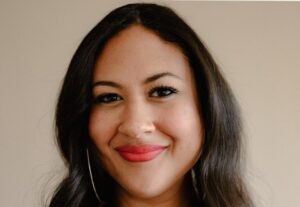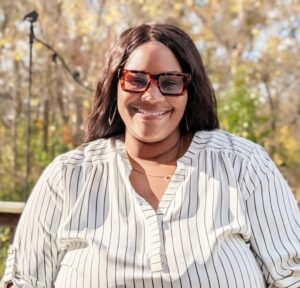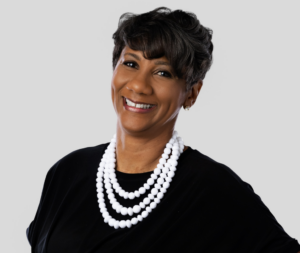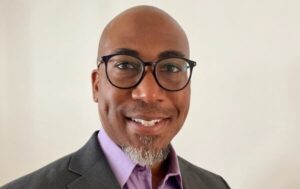6 questions with: Codeword’s Michael McKloskey
Michael McKloskey shares how active involvement in shaping a vision or influencing the creation of something in alignment with a shared vision leads to next-level success.

Michael McKloskey, as the managing partner and EVP at Codeword, heads the New York office of the tech PR and content agency. In this role, he guides the creation and implementation of effective communication campaigns, catering to clients that span from global giants like Google to emerging tech startups.
McKloskey’s greatest enthusiasm and success unfolded in the realm of technology brands and content programs.
We caught up with McKloskey to get his thoughts on the future of the communications industry.
What book, podcast or other media do you recommend to other comms pros?
It’s tough to keep up with all that’s out there. I’m lucky that the Codeword team is so great about filling our internal chat space – The Reading Room – with great articles across a vast array of interests, from Dirt’s recent piece: Herzogians, to 404 Media’s Advertisers Don’t Want Sites Like Jezebel to Exist.
Otherwise, I try to make time to read the WSJ’s CMO Today newsletter every day and the Axios Communicators newsletter every week. For comms pros, I like that they bring forward more of the business impact of marketing and media.
What’s your favorite tool you use regularly for work?
Honestly, I really appreciate the usability and easy team collaboration within Google Docs and Slides. It’s been about ten years that Codeword’s been using Google tools for our day-to-day so I might be conditioned, but they’re right up there as my favorite ways to communicate internally and externally. And they keep adding new features that are making it even better. (Yes, Google’s a client but I’m not being paid to say this, promise!)
What excites you most about the future of communications?
I’m most excited by the evolving sophistication of audiences, who are increasingly showing a heightened level of discernment from brands and an escalating expectation for unbiased media. We enjoy doing work that meets audiences’ growing appetite for honesty and transparency. As this audience savvy continues to grow, I hope we’ll all be making things with our clients and the media that people really care about seeing. We all can move away from the same ol’ product-focused sales pitches disguised as “storytelling” that no one really wants. And I think it’ll be more efficient and effective for brands too.
What communications challenge keeps you up at night?
My biggest worry is the unwillingness the industry has to change. The inertia of doing things the same way is really hard to reverse. There are huge rewards for taking smart risks and challenging the status quo, but the industry’s focus on traditional success metrics keeps us sticking to the same strategies. Agencies are incentivized to say things are working, publishers and media partners are incentivized to say things are working, and clients are incentivized to tell their boss (whether that’s the CMO, CEO, or board of directors) that the budget was well-spent. And I think it’s true across the whole marcomms mix, especially in traditional advertising. We need to assess the whole picture and reconsider the substantial investments going into traditional advertising. That money can be better spent in digital media, which does not mean running your TV spots on social platforms. For a fraction of what you’re spending in broadcast media, you can create an awesome comms program that’s actually going to reach the people interested in your brand. That’s worth way more than “general awareness.”
What’s the biggest challenge you’ve overcome in your career?
The early days of Codeword (then called Knock Twice) were really challenging. As Kyle Monson and I started getting things going in NYC in 2013, we were lucky enough to have a couple of big client wins in the same week. It felt awesome. But we had to get from four people team to 24 people in a matter of weeks. We moved office spaces at least three times in those first few years, hired our first employees for departments that did not exist yet, had to play HR/IT/Ops before we could properly staff a back office, all while trying to figure out how to deliver high-quality work on current client programs and continue to grow the agency.
I’m so grateful for the people who helped us so immensely in those early days. The team was great about “being scrappy” with us, and pretty forgiving about how we handled the stress of it all. And I’m even more grateful to have gotten through it and be in a position now where we have this great team of over 100 experts in their fields making Codeword what it is.
What is the best advice you’ve ever gotten?
I’ve gotten a lot of good advice and mentorship over the years. I’m not sure if this is “advice” per se or more of a leadership philosophy. Back in college, I worked with a terrific leadership development company called Focus Training, they introduced me to the idea that people will support what they help to create. I think that’s true in most parts of life, certainly within our agency teams and client relationships.
We all want to be able to shape our world and what we’re doing in it, with our own reasons for why. When we don’t really have control over what’s being created or what we’re doing, we lose almost all of our enthusiasm for the successful outcome. It’s hard to feel that boost of self-motivation when you’re supporting someone else’s vision and taking specific direction on what to do. But when we can be a part of shaping that vision, or directly influence how something is built in support of a shared vision, there’s an added level of ownership that propels us toward next-level success.
Isis Simpson-Mersha is a conference producer/ reporter for Ragan. Follow her on LinkedIn.







